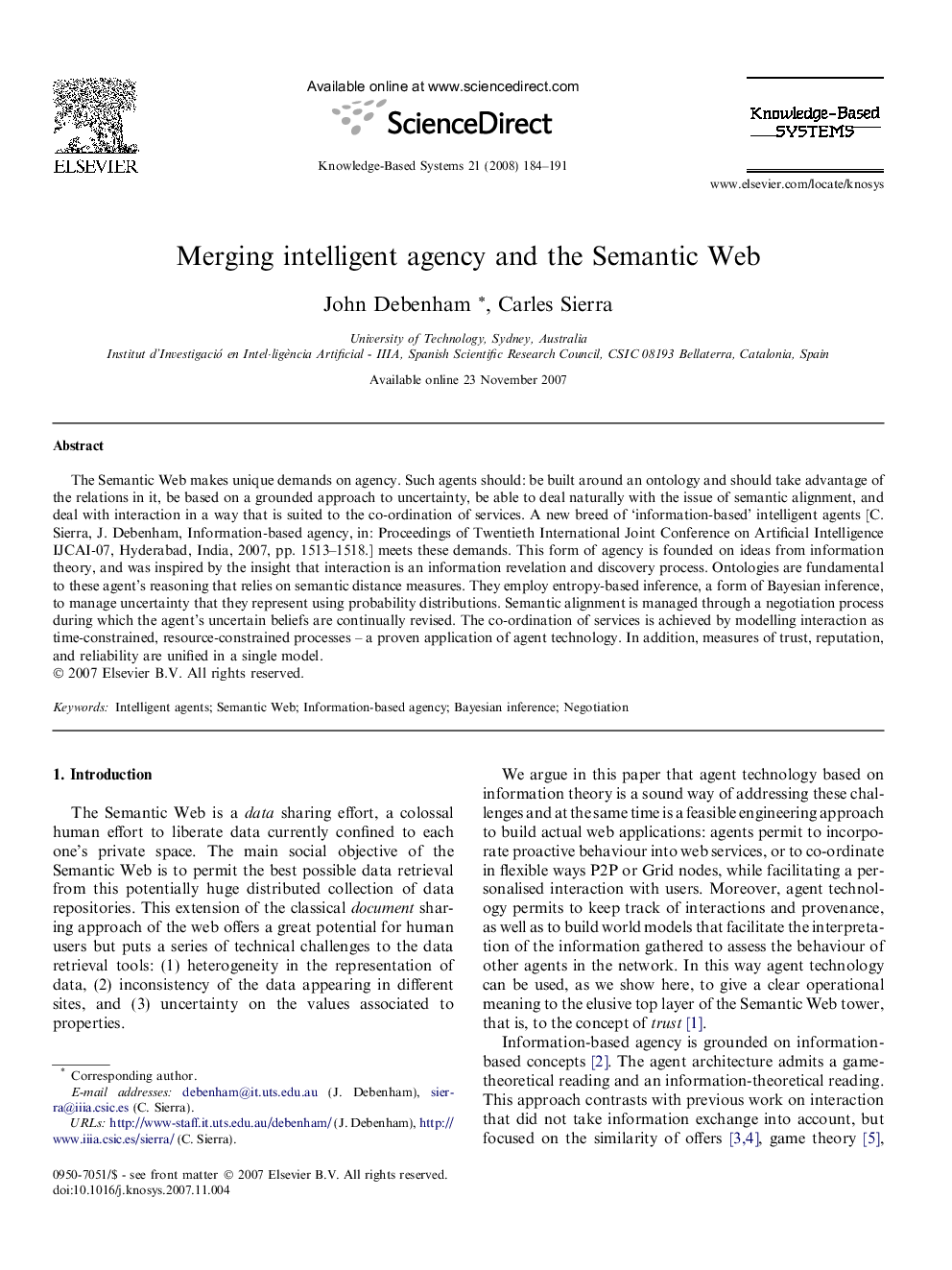| Article ID | Journal | Published Year | Pages | File Type |
|---|---|---|---|---|
| 403189 | Knowledge-Based Systems | 2008 | 8 Pages |
The Semantic Web makes unique demands on agency. Such agents should: be built around an ontology and should take advantage of the relations in it, be based on a grounded approach to uncertainty, be able to deal naturally with the issue of semantic alignment, and deal with interaction in a way that is suited to the co-ordination of services. A new breed of ‘information-based’ intelligent agents [C. Sierra, J. Debenham, Information-based agency, in: Proceedings of Twentieth International Joint Conference on Artificial Intelligence IJCAI-07, Hyderabad, India, 2007, pp. 1513–1518.] meets these demands. This form of agency is founded on ideas from information theory, and was inspired by the insight that interaction is an information revelation and discovery process. Ontologies are fundamental to these agent’s reasoning that relies on semantic distance measures. They employ entropy-based inference, a form of Bayesian inference, to manage uncertainty that they represent using probability distributions. Semantic alignment is managed through a negotiation process during which the agent’s uncertain beliefs are continually revised. The co-ordination of services is achieved by modelling interaction as time-constrained, resource-constrained processes – a proven application of agent technology. In addition, measures of trust, reputation, and reliability are unified in a single model.
